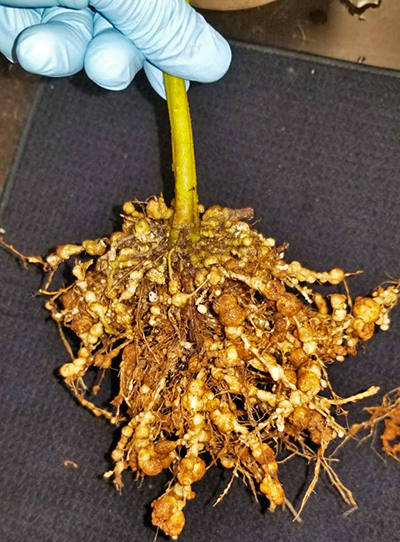
By Clint Thompson
Guava root-knot nematodes are still the most threatening species to impact Florida tomatoes every year. One University of Florida Institute of Food and Agricultural Sciences (UF/IFAS) specialist believes an integrated management approach remains the best management tactic.
Johan Desaeger, assistant professor of entomology and nematology at the UF/IFAS Gulf Coast Research and Education Center in Wimauma, Florida, spoke at the Florida Tomato Conference last week. He emphasized that guava root-knot nematodes are one of the most common species in Florida and are less likely to be impacted by resistant varieties.
“They are far more important in tomatoes than any other nematode. It’s because of the heavy galls they cause on the roots. They often are associated with fusarium wilt. They can cause a lot of damage and yield loss,” Desaeger said. “The specific thing about guava and why we’re especially concerned about it is it’s one of the few species; we do have a bunch of nematode resistant tomato varieties … but those do not work, we believe, against guava root knot. This guava root knot is a newer species that’s only been known for a few decades.”
Fumigation is still an effective strategy prior to planting season to neutralize nematode pressure. But it does not last all season in some fields. That is why some growers resort to planting resistant varieties if they are effective.
Desaeger also encourages growers to plant cover crops during the fallow season. Sunn hemp and sorghum sudangrass are good rotational options, as both are poor or non-hosts to guava root knot nematodes.
Guava root-knot nematodes are more aggressive than most species. They reproduce faster, leading to additional generations and more severe galling.
A huge concern for all specialty crop farmers in Florida is that there are more than 3,000 plant hosts for root-knot nematodes. There are very few hosts the species doesn’t like.









